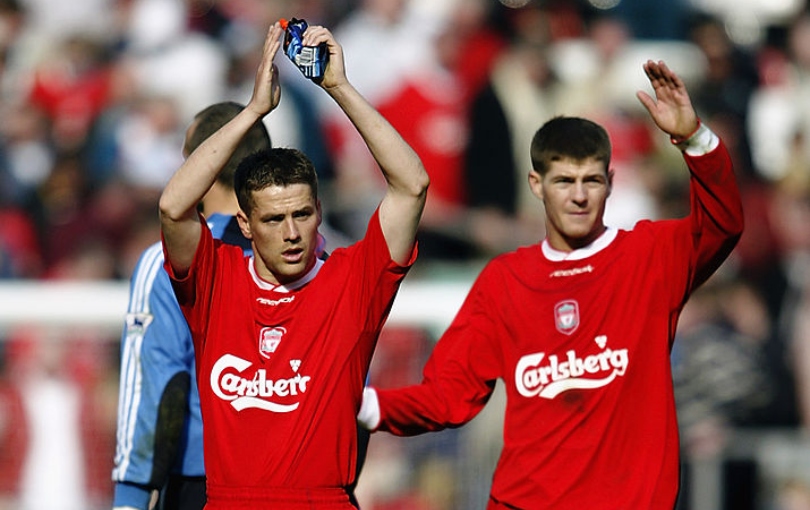Blatter in profile: A look back on 17 years at the top of world football
The focus surrounding the scandal that has engulfed FIFA in 2015 is now fixed on president Sepp Blatter.
Sepp Blatter's controversial reign at the head of FIFA took another twist on Friday when it was announced the Office of the Attorney General of Switzerland (OAG) has opened criminal proceedings against him on suspicion of criminal mismanagement and misappropriation.
Here we look back at his 17-year tenure at the top of the global game.
Early Years
Having joined FIFA in 1975, Blatter moved from his role as technical director to that of general secretary under the presidency of Brazilian Joao Havelange.
Presidential reign begins
After 17 years working for Havelange, Blatter succeeded his mentor in 1998 as he beat former UEFA president Lennart Johansson in the presidential election. Despite being the underdog, Blatter received 111 votes to Johansson's 80 and was handed victory when the Swede conceded defeat before the second ballot.
Get FourFourTwo Newsletter
The best features, fun and footballing quizzes, straight to your inbox every week.
Criticisms and allegations emerge
Having brushed off allegations of bribery in 1998, Blatter was at the centre of another scandal three years into his first term - a FIFA investigation into the collapse of marketing partner labelled the president "clumsy" but confirmed he had no involvement in any "criminal or ethical misconduct".
Re-election for second term
Despite 11 members of the FIFA Executive Committee filing criminal complaints against him, Blatter won a second term at the top of football's governing body in 2002. Cameroonian candidate Issa Hayatou was his challenger, but he was unable to stop the popular president being re-elected, Blatter winning 139 of the 195 votes cast.
Spreading the World Cup
Part of Blatter's presidential promises was to take football to all continents around the world and give some of the non-footballing powerhouses the chance to host the global showpiece - a promise he kept throughout his tenure. Having taken the competition to South Korea and Japan in 2002, it was the turn of South Africa in 2010 - the first African nation to host the event. Blatter continued his push to make the competition a global event, and minnows Qatar were awarded hosting rights for 2022.
Third term secured
Blatter earned himself a third term in office in 2007 when he ran unopposed for re-election, his popularity across the footballing world continuing to grow. However, the next big scandal began his slippery slope out of office. In 2010, the bidding process for the 2018 and 2022 World Cups saw controversy rain down on the organistation - and Blatter - as Russia and Qatar were awarded the finals. Accusations of bribery, financial mismanagement and vote-rigging were made, although again none implicated the president.
Garcia investigation
Amid the controversy surrounding Russia and Qatar's bids, a FIFA Ethics Committee investigation into the process declared violations of their code had occurred, but deemed they had not affected the integrity of the vote. The man who provided the research into the two bids for the committee - Michael Garcia - produced a report detailing his findings. However, the full details of the report were never made public and Garcia quit his role in protest following the Ethics Committee's verdict. The football world is still waiting to hear Garcia's findings in full.
Re-election unopposed
Although Mohamed bin Hammam put himself forward as a presidential candidate to rival Blatter in 2011, the Qatari soon withdrew his bid after reports of bribery for votes during his campaign. Blatter was duly re-elected.
Scandal rocks 2015 FIFA Congress
With a fifth election only days away, FIFA was thrown into turmoil on May 27, 2015 as Swiss authorities arrested nine FIFA officials as part of a United States Department of Justice investigation in corruption allegations. Blatter was again not implicated but the scandal marred the upcoming election against Prince Ali bin Al Hussein, however the Swiss prevailed once again as he secured enough votes to win the first ballot before Prince Ali withdrew ahead of the second round.
Resignation
The re-elected president promised to "fix" FIFA after securing a fifth term but four days later, amid more controversy over an alleged bribe paid by the South African government for the 2010 World Cup hosting rights, Blatter resigned. It was announced an election to find a successor was to be held on February 26, 2016.
Criminal proceedings
A week after long-standing right-hand man Jerome Valcke was suspended by FIFA over allegations he intended to profit from selling World Cup tickets above face value - allegations he denies - Blatter also found himself under the spotlight. The OAG announced it is investigating claims Blatter sold television rights for the 2010 and 2014 World Cups to Caribbean Football Union chief, and former FIFA heavyweight, Jack Warner for a fraction of their market value. The OAG is also looking into a payment made in 2011 to UEFA president Michel Platini, allegedly made for work carried out by the Frenchman between 1999 and 2002.
